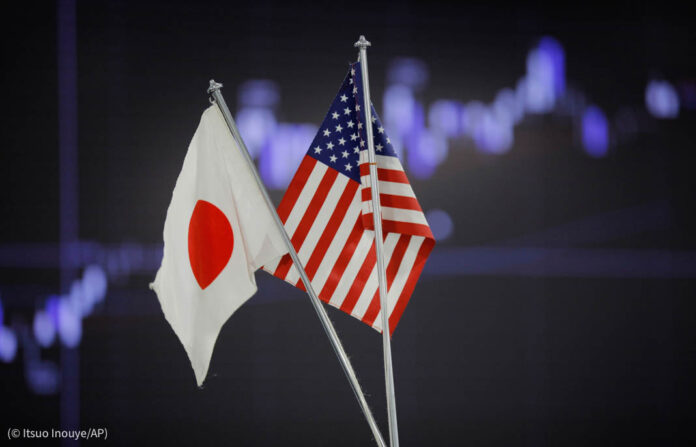The United States and Japan have reached a trade agreement that cuts tariffs on Japanese auto imports and avoids new duties on other goods in exchange for a U.S.-bound investment and loan package valued at $550 billion.
President Donald Trump announced the deal during a meeting at the White House, calling it the largest trade agreement ever signed with Japan.
The agreement reduces U.S. tariffs on Japanese autos from 27.5% to 15%. Planned duties on other Japanese goods that were due to take effect on August 1 will also be lowered from 25% to 15%.
Japan’s auto sector, which makes up over a quarter of its exports to the U.S., is expected to benefit from the cuts.
Japanese Prime Minister Shigeru Ishiba welcomed the deal, calling the tariffs the lowest imposed on a country that runs a trade surplus with the United States. Two-way trade between the countries reached nearly $230 billion in 2024, with Japan recording a $70 billion surplus.
Japan is the fifth-largest U.S. trading partner, according to government data.
The $550 billion investment package includes loans and guarantees from Japan’s government-linked institutions to help Japanese firms build supply chains in areas such as pharmaceuticals and semiconductors. The deal also covers increased purchases of U.S. agricultural products, including rice.
Ishiba said the agreement would not harm Japanese agriculture.
Financial markets responded positively. Japan’s Nikkei index rose nearly 4%, led by gains in automakers.
Shares in Toyota rose more than 14%, while Honda climbed almost 11%. The optimism also lifted shares of automakers in South Korea and Europe.
Japanese companies JERA and Tokyo Gas have shown interest in the Alaska LNG project, which Trump said could benefit from a new joint venture with Japan. A photo from the White House meeting showed a document titled “Japan Invest America” with a handwritten figure of $500 billion, revised from $400 billion.
While Japan’s top trade negotiator Ryosei Akazawa said the deal marks a major step, he clarified that it does not apply to Japanese exports of steel and aluminium, which remain under a 50% tariff. He added that Japan would remove extra safety tests required on imported U.S. cars and trucks.
The trade deal has drawn criticism from U.S. automakers. The American Automotive Policy Council argued that the agreement favours Japanese imports over vehicles produced in North America with high U.S. content.
Trump said trade talks with other countries are ongoing. Negotiations with the European Union are expected to continue in Washington. The administration is working to finalize more deals before the August 1 deadline, after which additional tariffs may be imposed.




